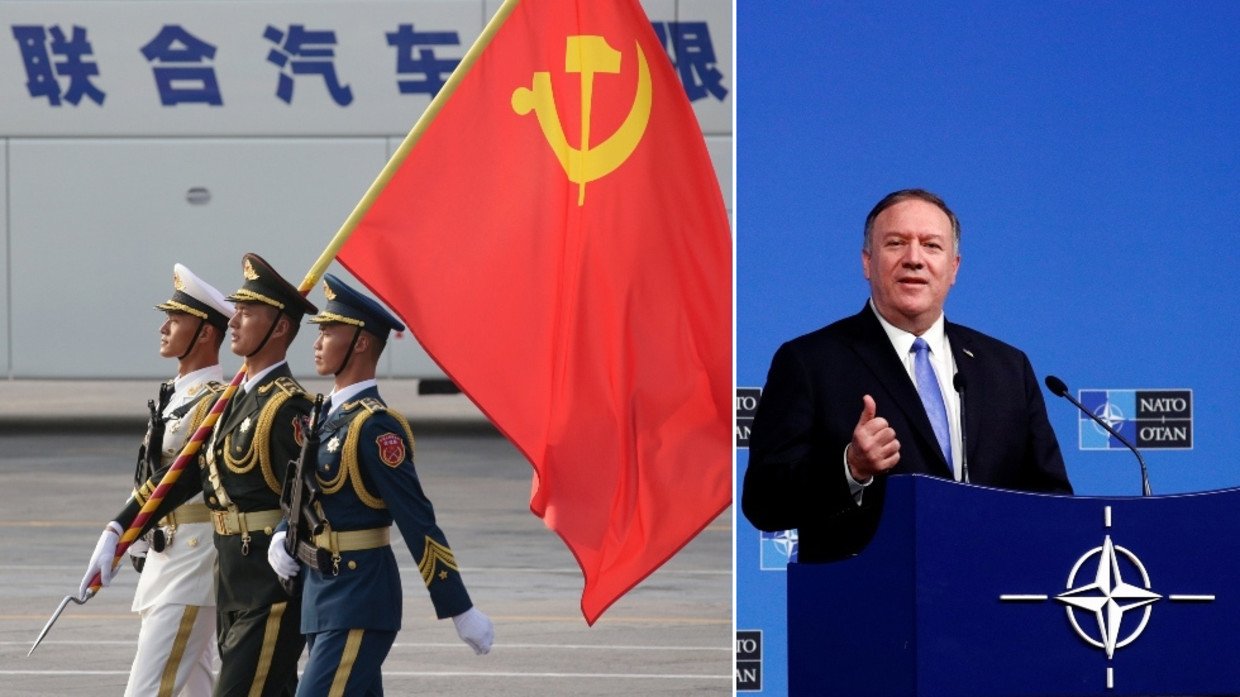With the US establishment’s attention firmly fixed on the impeachment hearings in Washington, Secretary of State Mike Pompeo seems to have expanded NATO’s mission into the Far East, to oppose the Communist Party of China.
Speaking at the meeting of NATO ministers of foreign affairs in Brussels on Wednesday, Pompeo said that “our alliance must address the current and potential long-term threat posed by the Chinese Communist Party,” adding that NATO countries cannot ignore the “fundamental differences and beliefs” between themselves and the ruling party in Beijing.
The US Secretary of State framed the anti-China pivot in the context of what he described as NATO’s victory in the Cold War for “the cause of freedom and democracy.”
Thirty years later, we again face threats from authoritarian regimes, and again we must face them together. Russia, China, Iran – their value systems are simply very different from ours.
Reporters in Brussels were far more interested in impeachment-related gossip, and none of them asked about China. Pompeo himself brought Beijing up again, when asked about the French and German proposals for reforming NATO, saying that the “critical alliance” has to be structured properly for its ever-changing objectives, and noting that the “threat from the Chinese Communist Party” was not something NATO was thinking about at its founding in 1949.
Also on rt.com We are experiencing brain death of NATO, Macron warns EuropeEarlier this month, French President Emmanuel Macron argued that NATO was “brain dead” and questioned the US commitment to defend its European allies. Instead, the French president urged, the EU should work on developing its own “military sovereignty.”
The alliance has also struggled to deal with Turkey, which has NATO’s second-largest military, but has been using it to pursue its own policies and interests that sometimes clash with that of the US – such as the recent incursion into northern Syria, aimed at the US-allied Kurdish militias there.
NATO has repeatedly redefined its mission since the end of the Cold War in 1989, finding new reasons for its continued existence, from “humanitarian interventions” in the Balkans to counter-terrorism in the wake of September 11, 2001 terrorist attacks against the US. It has also continued to expand, with the tiny Balkans republic of Montenegro becoming the latest member in 2017, and nearby North Macedonia scheduled for admission soon.
Like this story? Share it with a friend!

